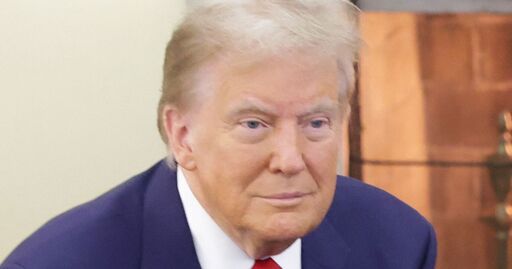Summary
Fox News host Julie Banderas warned that President-elect Donald Trump’s proposed tariffs—25% on products from Mexico and Canada and 10% on those from China—could significantly raise costs for Americans, as many businesses rely on foreign goods.
While some companies are shifting to U.S.-based suppliers or stockpiling goods ahead of the tariffs, Banderas noted that buying American often results in higher prices.
She highlighted that the financial burden would likely fall on consumers, questioning, “Who’s going to pay for that? We are.”
Economists have also warned of inflation risks.



In our current economic model, any deflation creates a perverse incentive to not spend. It is extremely bad for the economy, and all of us reliant on it. The rich are one of the few groups that come out ahead (relatively).
Like it or not, we are all stuck on that merry go round. Until we find a graceful way off, it’s in no-one’s interest to jam it up.
Our current economic model is a humanitarian and ecological disaster. We need to pump the brakes. Many more lives will be lost due to excessive consumption and inequality - we’re out of time for graceful.
There’s a difference between pumping the brakes and throwing a grenade into the fuel tank. A large scale economic collapse would be devastating. The world economy is so interdependent now that even minor disruptions cause problems.
I’m all for pumping the brakes, but we either need to stop gracefully, or have an alternative to jump to.
No, we absolutely do not. It’s too late to stop gracefully - I cannot overstate how much worse it’s going to get if we stop even now.
Consumption needs to go down, this will collapse the delicate house of cards we’ve built… and we have no other choice.
So how do you see deflation going then? Particularly deflation of the defacto reference currency for most of the world?
As far as I can tell, it would make the disruption of covid look like a minor market blip. And that’s without looking into how the various chain reactions would play off and amplify each other on the global stage.
Après moi, le déluge
Can you not eat? There are some things you have to consume all days.
Just basic requirements for life and nothing extra will destroy any developed countries economy. If things aren’t sold they’ll stop sending them there, so as people just stop buying luxuries, they’ll stop even being an option. Less tax money means the government has issues more than normal, and if you aren’t buying anything who are they gonna tax? The companies won’t have money because they aren’t selling anything.